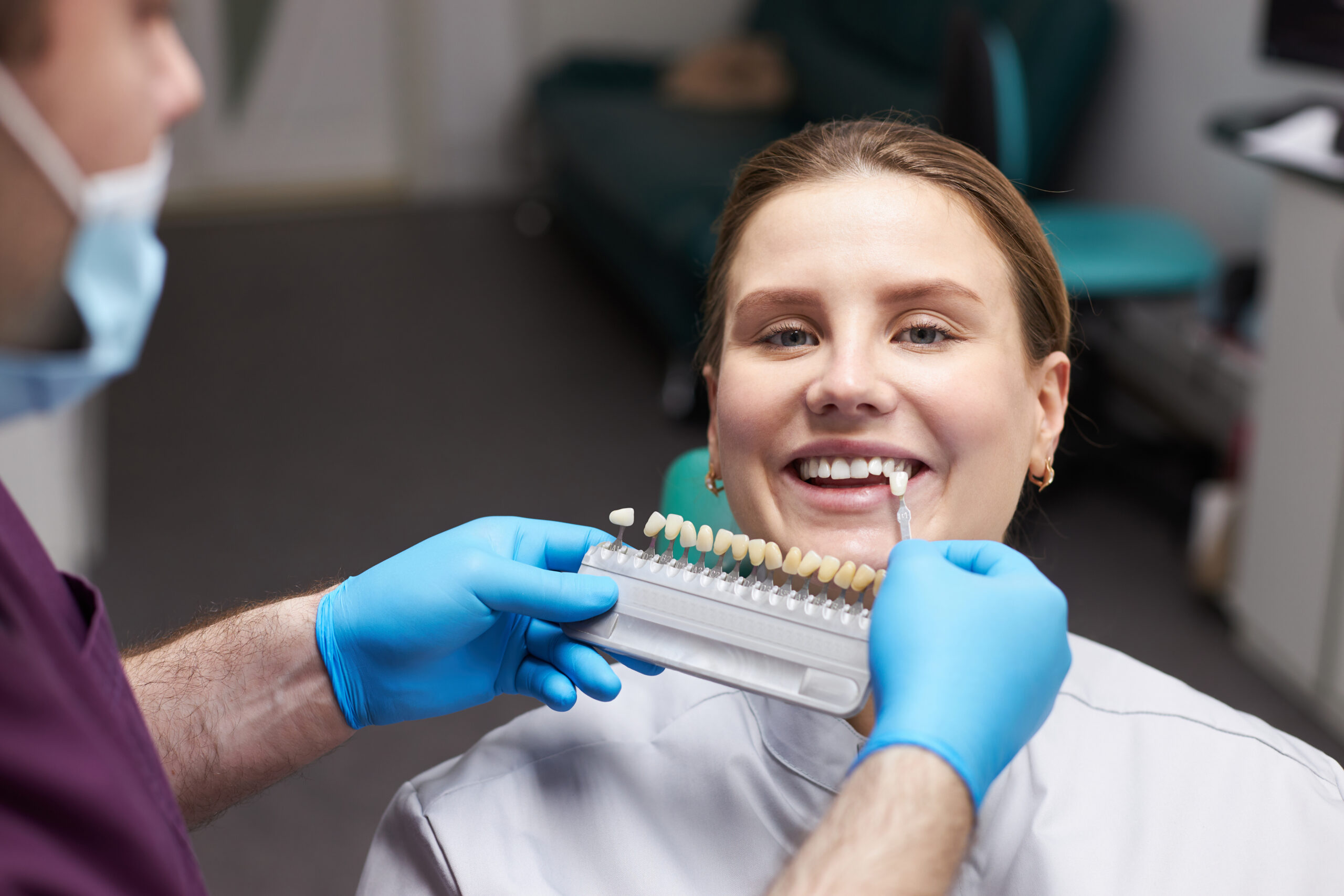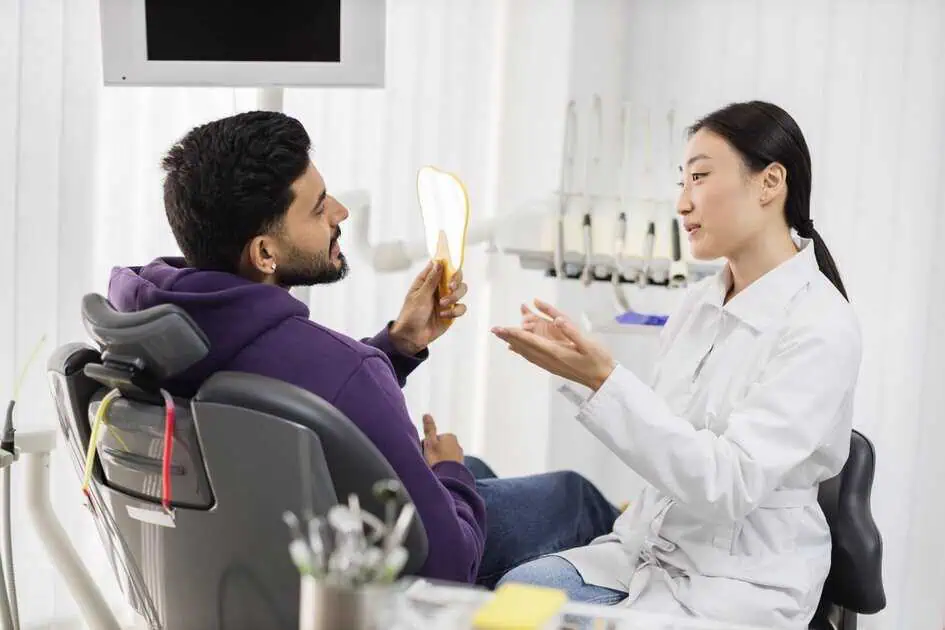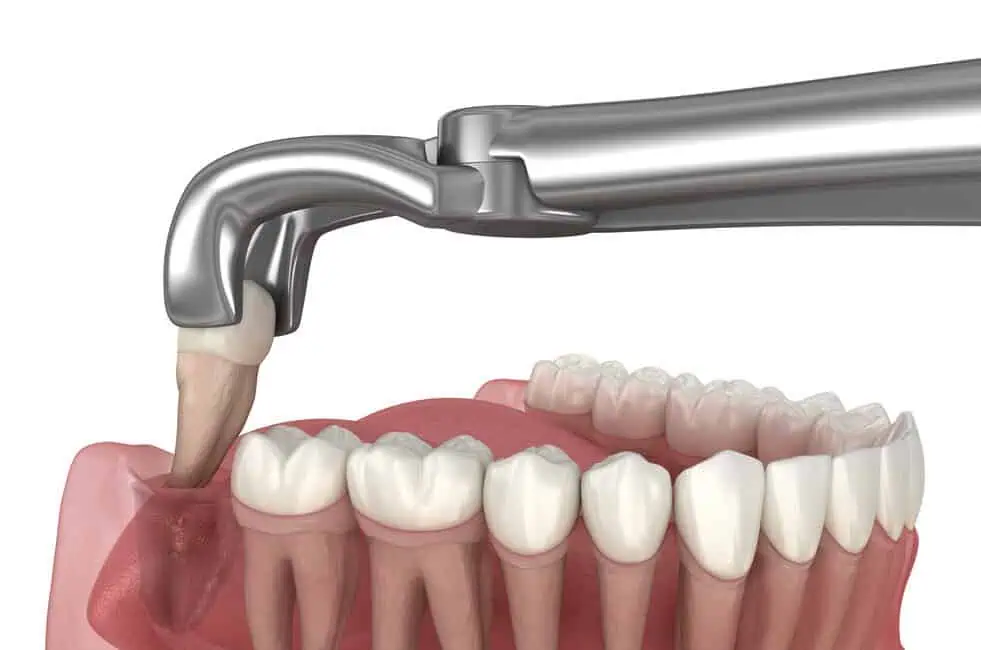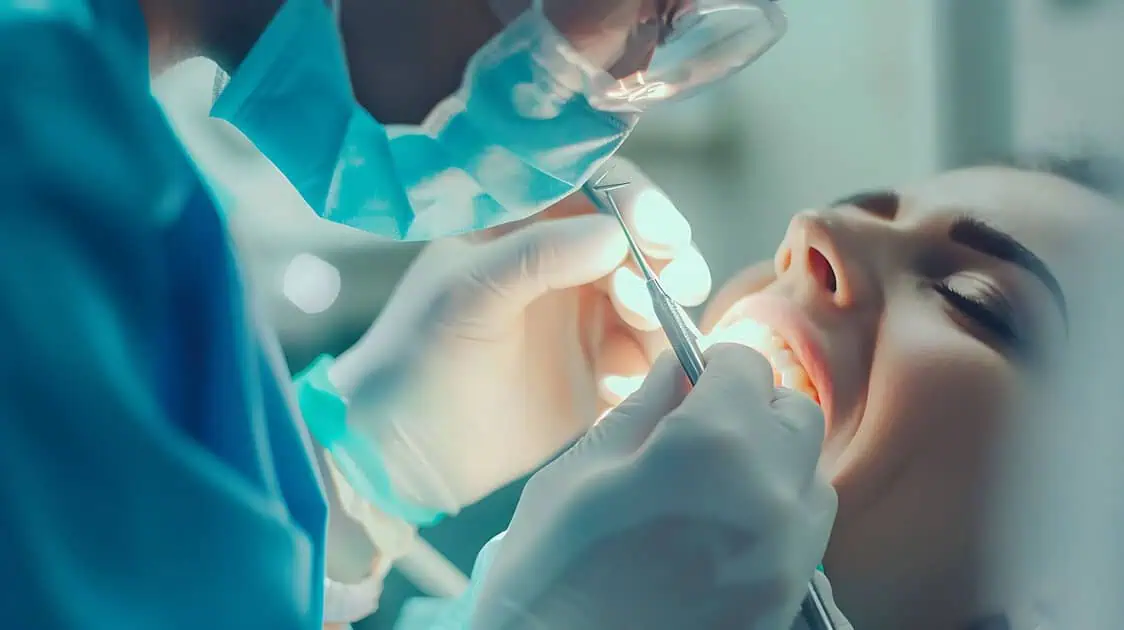Are you struggling with persistent jaw pain and searching for effective treatment options? Look no further, as 24th St Dental Biltmore in Phoenix is here to help you navigate through various TMJ treatment plans tailored to your needs. In this blog post, we will explore different methods available for addressing temporomandibular joint (TMJ) disorders, from non-invasive techniques to surgical interventions, and reveal how you can prevent TMJ-related issues from escalating.
Embark on this journey with us to understand the complexities of TMJ disorders and learn about the innovative solutions 24th St Dental Biltmore offers to alleviate your pain and improve your overall quality of life.
Key Takeaways
- 24th St Dental Biltmore offers non-invasive treatment options such as lifestyle changes, relaxation techniques and oral splints to manage TMJ disorders.
- Professional consultation is essential to diagnose and treat TMJ disorders, enabling you to resume daily activities without pain.
- Implementing prevention strategies can help reduce the risk of developing or exacerbating existing symptoms of TMJ disorder.
Effective TMJ Treatment: Understanding Options for Jaw Pain Relief

Imagine a life without jaw pain, free from the frustrating symptoms of temporomandibular joint disorders. Fortunately, various treatment options are available for those suffering from TMJ pain, including both nonsurgical and surgical methods. Studies have shown that non-surgical treatments, such as oral splints and physical therapy, can provide significant relief from TMJ symptoms, allowing patients to return to their daily activities without discomfort.
However, in some cases, surgical treatments like TMJ arthroscopy may be necessary to correct the underlying issue and provide long-term relief from jaw pain. Grasping the variety of TMJ treatment options is fundamental for identifying the optimal solution tailored to each individual’s specific circumstances, resulting in a life without chronic pain throughout.
To schedule an appointment with 24th Street Dental Biltmore and start your journey to a healthier smile, call (602) 468-1135 or visit their website at https://www.24streetdentalphoenix.com/.
Understanding TMJ Disorders
The temporomandibular joint (TMJ), also known as the jaw joint, serves as a sophisticated and integral element of our anatomy, linking the lower jaw to the top jaw locking the skull and permitting core functions such as eating and speaking. Regrettably, complications can originate from these jaw joints, resulting in the onset of temporomandibular disorders (TMD). TMD can result in a wide range of symptoms, including:
- Jaw pain
- Difficulty chewing
- Headaches
- Facial pain
These symptoms emphasize the urgency to address these disorders before they escalate into more severe complications.
The exact cause of TMJ disorders can vary, with factors such as jaw injury, teeth grinding, and missing teeth all potentially contributing to the development of the TMD symptoms. By understanding the symptoms and causes of TMJ disorders, individuals can work with healthcare providers to find the most appropriate treatment plan, ultimately improving their quality of life and reducing the impact of these conditions on their daily activities.
Non-Invasive Treatment Options at 24th St Dental Biltmore
At 24th St Dental Biltmore, nonsurgical treatments are available to help manage TMJ disorders, including lifestyle changes, relaxation techniques, and oral splints.
Let us delve further into these non-invasive approaches and comprehend their benefits in mitigating TMJ symptoms.
Lifestyle Changes
Lifestyle modifications play a significant role in managing TMJ disorders and alleviating symptoms. Simple changes, such as making an effort to eat soft foods, avoiding hard or chewy items, and practicing good posture, can help reduce strain on the jaw and minimize discomfort. Additionally, incorporating physical activity into your daily routine may also aid in improving TMJ symptoms, although further research is required to establish a definitive link between physical fitness and TMJ disorders.
An often-overlooked aspect of TMJ management is the importance of sleep position. Sleeping on your back is considered the most beneficial position for TMJ patients, as it avoids putting pressure on the jaw and can provide relief relieve pressure both from TMJ and bruxism.
Through the adoption of these lifestyle modifications, individuals can efficiently control their TMJ symptoms and witness substantial enhancements in their overall well-being.
Relaxation Techniques
Stress and TMJ disorders are often interrelated, making relaxation techniques a valuable tool in managing TMJ symptoms. Deep breathing exercises, meditation, and yoga are all effective methods for reducing stress levels and relaxing jaw muscles, ultimately leading to relief from jaw pain, tension headaches, and other TMJ-related issues.
Integrating relaxation techniques into your daily routine can not only aid in easing TMJ pain but also enhance overall mental and emotional wellness. By dedicating time each day to focus on relaxation and stress reduction, individuals with TMJ disorders can experience a significant improvement in their symptoms and overall quality of life.
To schedule a consultation or ask any TMJ-related questions, contact 24th St Dental Biltmore at (602) 468-1135.
Oral Splints and Mouth Guards
Oral splints and mouth guards are dental appliances that can be employed in the treatment of TMJ disorders. By providing support and alignment to the jaw, oral splints reduce stress on the TMJ and can help alleviate symptoms such as jaw pain, headaches, and teeth clenching or grinding. Mouth guards, on the other hand, are recommended if TMJ pain is linked to teeth grinding or clenching, as they help reduce pain by easing the overuse or extension of the jaw muscles.
Both oral splints and mouth guards can be customized to meet each patient’s specific needs, offering tailored solutions for TMJ treatment at 24th St Dental Biltmore. By integrating these dental devices into their treatment regimen, individuals with TMJ disorders can witness substantial enhancements in their symptoms and overall quality of life, as they provide support for the upper and lower teeth.
Medication Management
In addition to non-invasive treatments, medication management can play a vital role in controlling TMJ pain and inflammation. Over-the-counter medications such as nonsteroidal anti-inflammatory drugs (NSAIDs) like ibuprofen and naproxen can help relieve pain in the jaw and muscles, while muscle relaxants such as diazepam and cyclobenzaprine can help relax the jaw muscles and provide relief from muscle tension and spasms.
It is essential to consult with your healthcare provider before starting any medication regimen to ensure that it is appropriate for your specific needs and symptoms. By integrating medication management into your TMJ treatment regimen, you can efficiently manage pain and inflammation, allowing you to concentrate on other facets of your recovery and daily life.
Physical Therapy for TMJ

Physical therapy is a valuable tool in treating TMJ disorders, with various techniques such as jaw exercises, Transcutaneous Electrical Nerve Stimulation (TENS), and massage available to help reduce pain and improve physical function.
Let us examine these physical therapy methods further and understand their advantages for TMJ treatment.
Jaw Exercises
Jaw exercises can help improve TMJ symptoms by increasing the jaw’s range of motion, reducing discomfort, and alleviating TMJ pain. Exercises such as resist mouth-closing, resist mouth-opening, tongue lifts, jaw slide side-to-side, and the Oxford University Hospitals exercise are recommended by medical professionals to strengthen and stretch the jaw muscles, as well as the facial muscles.
Consistency is key when performing TMJ jaw exercises, with the recommended duration ranging from a few weeks to several months to see significant improvements. By integrating jaw exercises into your daily regimen, you can efficiently control your TMJ symptoms and witness a significant enhancement in your overall well-being.
Transcutaneous Electrical Nerve Stimulation (TENS)
Transcutaneous Electrical Nerve Stimulation (TENS) is a non-invasive treatment option for TMJ disorders that utilizes low-voltage electrical currents to activate nerves in the jaw muscles, thus reducing pain, relaxing the muscles, and increasing blood flow to the affected area. TENS therapy can help provide pain relief and improve jaw function, making it a valuable addition to any TMJ treatment plan.
Although TENS therapy is generally considered safe, it is important to note that some individuals may experience tingling and unusual sensations in the area of application, and prolonged or frequent use may result in skin irritation. Consult with your healthcare provider before beginning TENS therapy to ensure that it is appropriate for your specific needs and symptoms.
Massage and Moist Heat
Massage and moist heat offer numerous advantages for TMJ pain relief, including:
- Decreased tension
- Improved circulation
- Muscle stretching
- Stress relief
By integrating these techniques into your TMJ treatment regimen, you can efficiently control your symptoms and witness substantial enhancements in your overall well-being.
Kneading, friction, and stretching are three massage techniques that are effective in treating TMJ pain. Additionally, moist heat can provide relaxation of the surrounding muscles, pain relief, lessened muscle tension, and improved jaw function. By utilizing massage and moist heat in conjunction with other TMJ treatment methods, you can enhance your recovery and return to a pain-free life.
When to Consider Surgical Treatments
Surgical intervention for TMJ disorders should only be considered if suggested by your healthcare provider, as it often involves complex procedures such as arthroscopy and open-joint surgery.
Let us examine in greater detail 24th St Dental Biltmore’s proficiency in treating TMJ disorders, including considerations for surgical treatments.
24th St Dental Biltmore

24th St Dental Biltmore is a dental practice located in Phoenix, Arizona, specializing in TMJ treatment. Their team of experts utilizes oral appliances such as splints and stabilizers to effectively treat TMJ disorders, providing patients with customized solutions that cater to their specific needs.
To inquire about TMJ treatment options at 24th St Dental Biltmore, you can contact them at (602) 468-1135 for further assistance. With their expertise and commitment to providing the best treatment options, you can trust 24th St Dental Biltmore to help you on your journey to a pain-free life.
Seeking Professional Help
If you’re experiencing severe pain or difficulty in opening or closing your mouth, along with persistent or recurring jaw pain or tenderness near the joint, it’s essential to seek professional help for TMJ disorders.
During a TMJ consultation, a healthcare provider will assess your jaw, head, and neck area, evaluate jaw alignment and movements, and discuss your symptoms and medical history to diagnose the root cause of your TMJ pain and provide a personalized treatment plan.
Through professional consultation, you can ascertain the best-suited treatment for your TMJ disorder, enabling you to resume your daily activities without ongoing pain, and discomfort. Remember that early intervention is key to effectively managing TMJ symptoms and preventing further complications.
Prevention Strategies
Preventing TMJ disorders or worsening symptoms is essential for maintaining your overall well-being. Here are some ways to effectively reduce TMJ symptoms:
- Reduce stress
- Incorporate physical therapy and exercises
- Consult with a dentist or doctor if teeth grinding is an issue
- Wear a mouth guard at night
- Take muscle relaxants periodically
By following these steps, you can reduce the risk of developing TMJ disorders and alleviate symptoms.
Integrating these prevention strategies into your daily regimen can considerably lower the risk of developing TMJ disorders or exacerbating existing symptoms. By being proactive and addressing potential issues early on, you can ensure that your jaw remains healthy and pain-free.
Contact 24th St Dental Biltmore

If you’re experiencing TMJ pain and seeking professional assistance, don’t hesitate to reach out to 24th St Dental Biltmore for expert support and guidance. With their dedication to providing comprehensive TMJ treatment solutions, you can trust their team of professionals to help you navigate your TMJ journey and find the best treatment plan for your specific needs.
To schedule a consultation or ask any TMJ-related questions, contact 24th St Dental Biltmore at (602) 468-1135. Take the first step towards a pain-free life by seeking professional help from the experts at 24th St Dental Biltmore.
Summary
In conclusion, TMJ disorders can significantly impact your daily life, causing pain, discomfort, and limitations in jaw function. However, various treatment options are available to help manage and alleviate these symptoms, ranging from non-invasive techniques like lifestyle changes prescription medications, relaxation techniques, and oral splints, to more invasive procedures such as surgery when deemed necessary by a healthcare professional. By seeking professional help and implementing appropriate treatment plans, individuals with TMJ disorders can effectively manage their symptoms and improve their overall quality of life.
Remember, early intervention is crucial in addressing TMJ symptoms and preventing further complications. By adopting prevention strategies, seeking professional help, and working with specialists like those at 24th St Dental Biltmore, you can take control of your TMJ journey and embrace a healthier, pain-free future.
Frequently Asked Questions
What’s the best way to treat TMJ?
Self-care practices, such as avoiding extreme jaw movements and using ice packs, combined with short-term use of over-the-counter or prescription pain medicines, is the best way to treat TMJ. Permanent bite and other jaw movement changes should be avoided.
Can I treat TMJ myself?
Yes, it is possible to treat TMJ yourself with exercise; however, it is advisable to consult a doctor or dentist before proceeding as continuing exercises that cause further pain or discomfort can make the situation worse.
What causes TMJ to flare up?
TMJ flare-ups are typically caused by inflammation and overworked jaw muscles. Physical changes and lifestyle habits can contribute to swelling and tension control jaw movement, leading to pain and discomfort.
What non-invasive treatment options are available for TMJ disorders?
Non-invasive treatments for TMJ disorders include lifestyle modifications, relaxation exercises, and oral splints. All of these are effective ways to manage pain without the use of drugs or surgery.
Can physical therapy help improve TMJ symptoms?
Yes, physical therapy can be an effective way to improve TMJ symptoms by reducing pain and improving physical function.
Get in touch with 24th Street Dental Biltmore
Contact Us today to discover how we can assist you, whether you’re looking for our teeth whitening treatments or a full mouth renovation. You may call us during business hours to speak with a customer service representative. Call 24th Street Dental Biltmore at (602) 468-1135 to schedule an appointment and get your free consultation.












